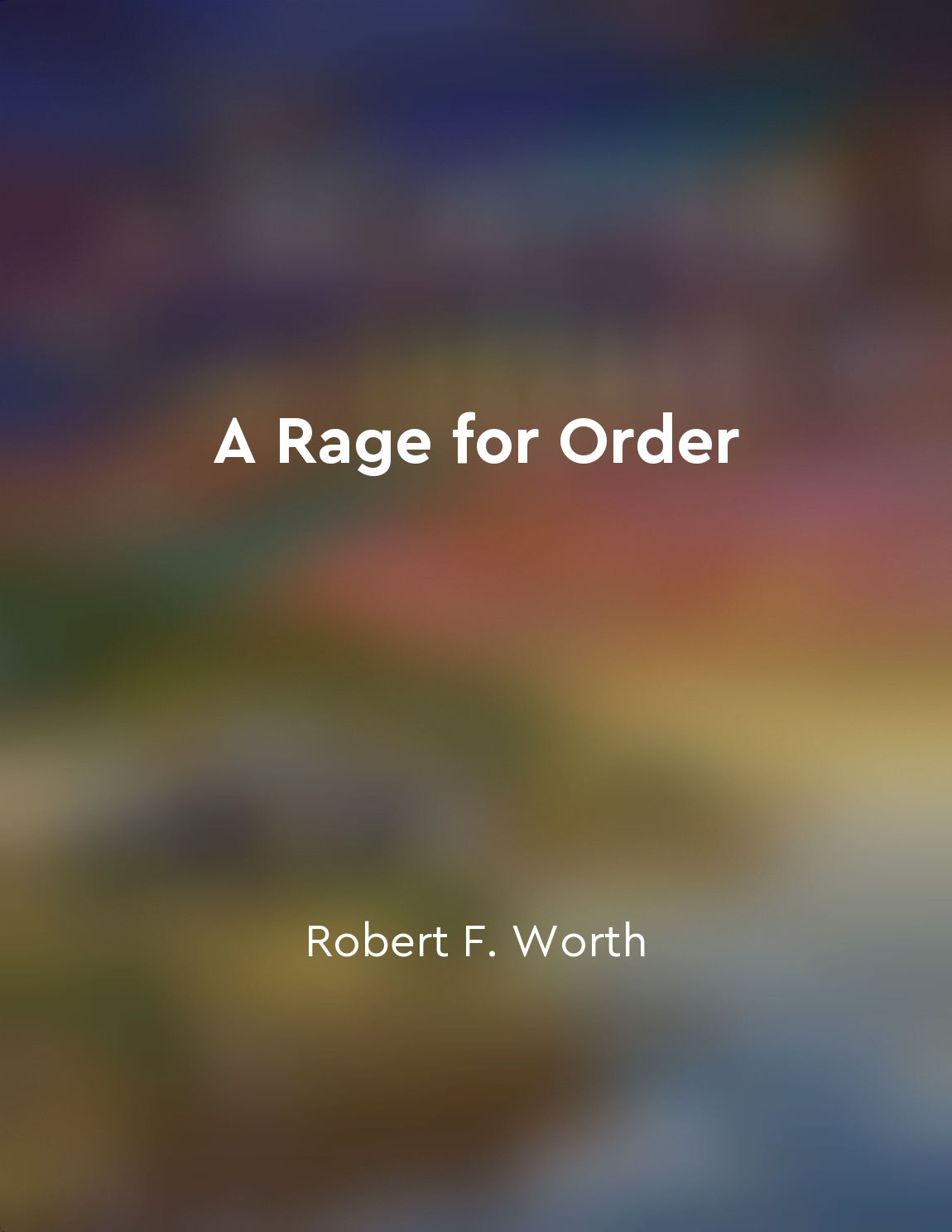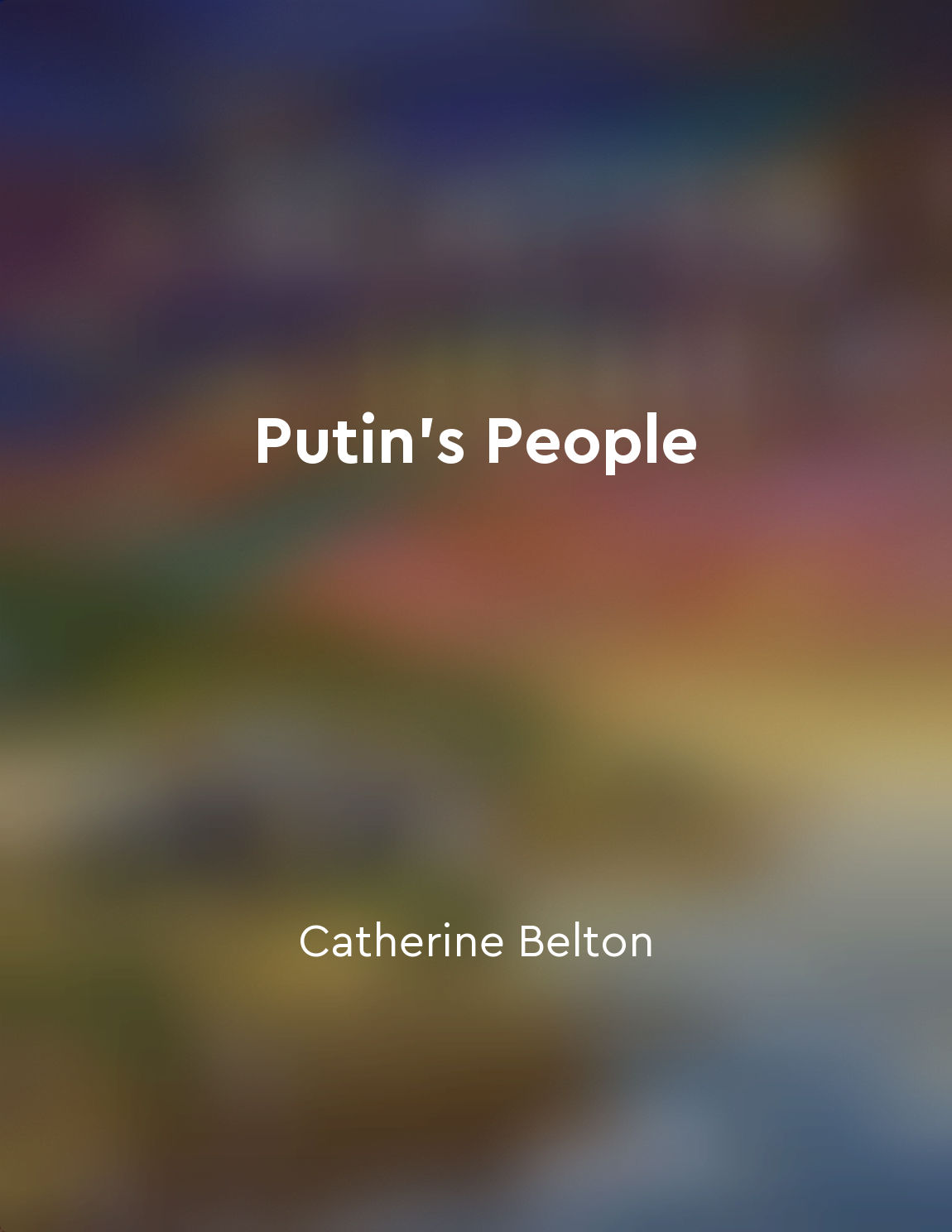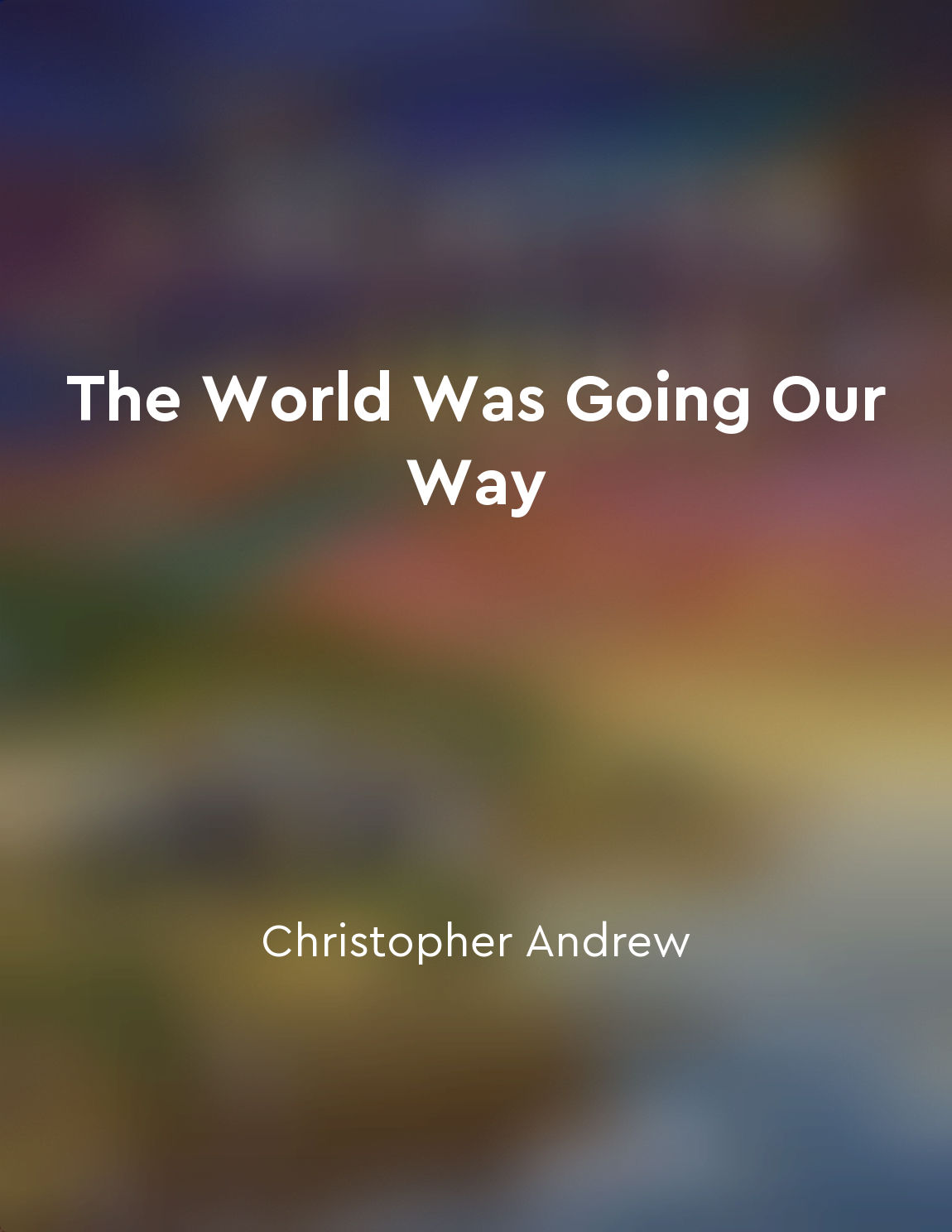The Kremlin's propaganda machine works to discredit critics and dissenters from "summary" of Putin's People by Catherine Belton
The Kremlin's propaganda machine is a powerful tool wielded by Putin and his inner circle to maintain control over Russia. This machine operates on multiple fronts, using state-controlled media outlets, social media bots, and online trolls to spread disinformation and smear campaigns against anyone who dares to criticize or challenge the regime. Critics and dissenters are often portrayed as enemies of the state, traitors, or Western puppets in a bid to discredit their voices and undermine their credibility. This tactic is used not only to silence dissent but also to sow confusion and doubt among the Russian population, making it harder for them to discern truth from fiction. Opposition figures, journalists, and activists are prime targets for the Kremlin's propaganda machine, with smear campaigns and personal attacks launched against them on a regular basis. Their reputations are tarnished, their motives questioned, and their integrity called into doubt in an effort to delegitimize their criticisms and erode public support for their causes. The goal of this propaganda campaign is not only to suppress dissent but also to create a climate of fear and intimidation that discourages others from speaking out against the regime. By painting critics as enemies of the state and traitors to the Russian people, Putin and his allies seek to solidify their grip on power and crush any potential challenges to their rule. In the eyes of the Kremlin, anyone who dares to speak out against the regime is fair game for attack, whether through character assassination, disinformation campaigns, or outright threats and intimidation. This ruthless approach to silencing dissent has been a hallmark of Putin's rule, and it shows no sign of letting up anytime soon.Similar Posts
Solzhenitsyn's writing gave voice to the voiceless
In the dark depths of the Soviet labor camps, where the cries of the oppressed echoed off the walls of despair, Aleksandr I. So...
Power can be a force for good or for evil, depending on how it is wielded
Stanley Kutler delves into the complex nature of power in his book "Abuse of Power," revealing how it can be a double-edged swo...

Militarization became entrenched
The military's dominance within Egypt's political landscape solidified over time. As protests subsided and the initial chaos of...
Fall of the Berlin Wall
The fall of the Berlin Wall in 1989 was a momentous event that symbolized the end of the Cold War and the division of Europe. T...
Betrayal is a common theme in politics
Betrayal is an essential part of the political game. It is a necessary evil that often plays a central role in the power strugg...
The war reshaped global power dynamics
The impact of the war on global power dynamics was profound. Prior to the conflict, the world was dominated by a handful of gre...
US intervention in Laos and Cambodia
US intervention in Laos and Cambodia was marked by covert operations, bombings, and military support for anti-communist forces....

Putin's government has targeted journalists and activists who speak out against the regime
Catherine Belton reveals in "Putin's People" how those who dare to challenge the Kremlin are met with ruthless retaliation. Jou...
Closed borders
The concept of closed borders was not just a physical reality in Eastern Europe during the Cold War, but a psychological one as...

global reach, Soviet intelligence network
The Soviet intelligence network possessed a global reach unrivaled by any other intelligence agency during the Cold War. This e...
